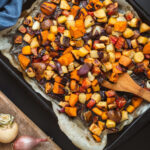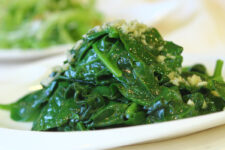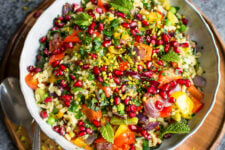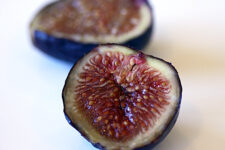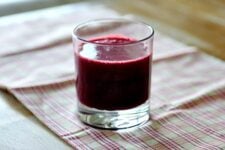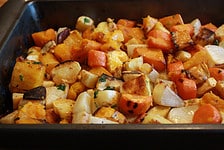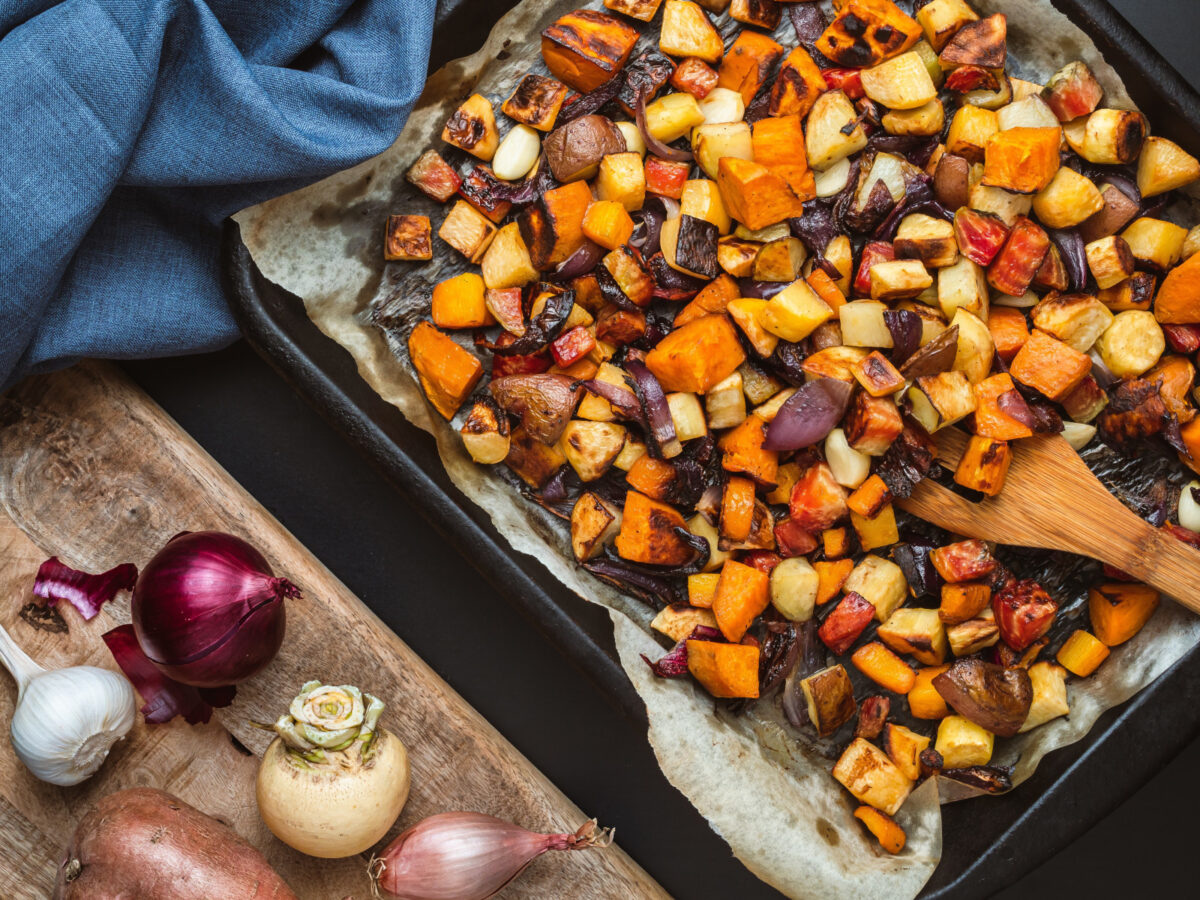
Though it’s well known that vegetables are an important part of a healthy diet, many people struggle to eat enough fresh produce. Barriers like spoilage, preparation time, and cost can get in the way.
Frozen vegetables are a more convenient alternative but are often perceived as less nutritious than fresh. Learn more about the nutritional quality of frozen vegetables and how they compare to fresh produce below.
Are Frozen Vegetables Healthy?
Yes, frozen vegetables are just as nutritious, if not more, than fresh produce because they’re frozen at the peak of freshness. Nutrients are lost the longer a vegetable sits on the shelf, and freezing the veggies stops this process and helps preserve the vitamins and antioxidants (1).
Nutritional Value of Frozen Vegetables Compared to Fresh Vegetables
Fresh vegetables often travel a long way between the point of harvest and your dinner plate. When fresh produce sits in transit, on the grocery shelf, or in your refrigerator, oxidation (or exposure to air) can lead to nutrient losses (1).
Since frozen vegetables are harvested at the peak of ripeness and frozen shortly after, there is less nutrient loss than in fresh produce.
Research shows that frozen veggies have the same amount of vitamin C, riboflavin, and vitamin E as fresh, with some even having higher amounts. This indicates that both water-soluble and fat-soluble vitamins are preserved (1).
Antioxidants are beneficial plant compounds that can help prevent chronic diseases. Studies show that some antioxidant loss may occur during the freezing process due to the breakage of cell walls. However, other research has found that certain antioxidants become more available for digestion during this process (2).
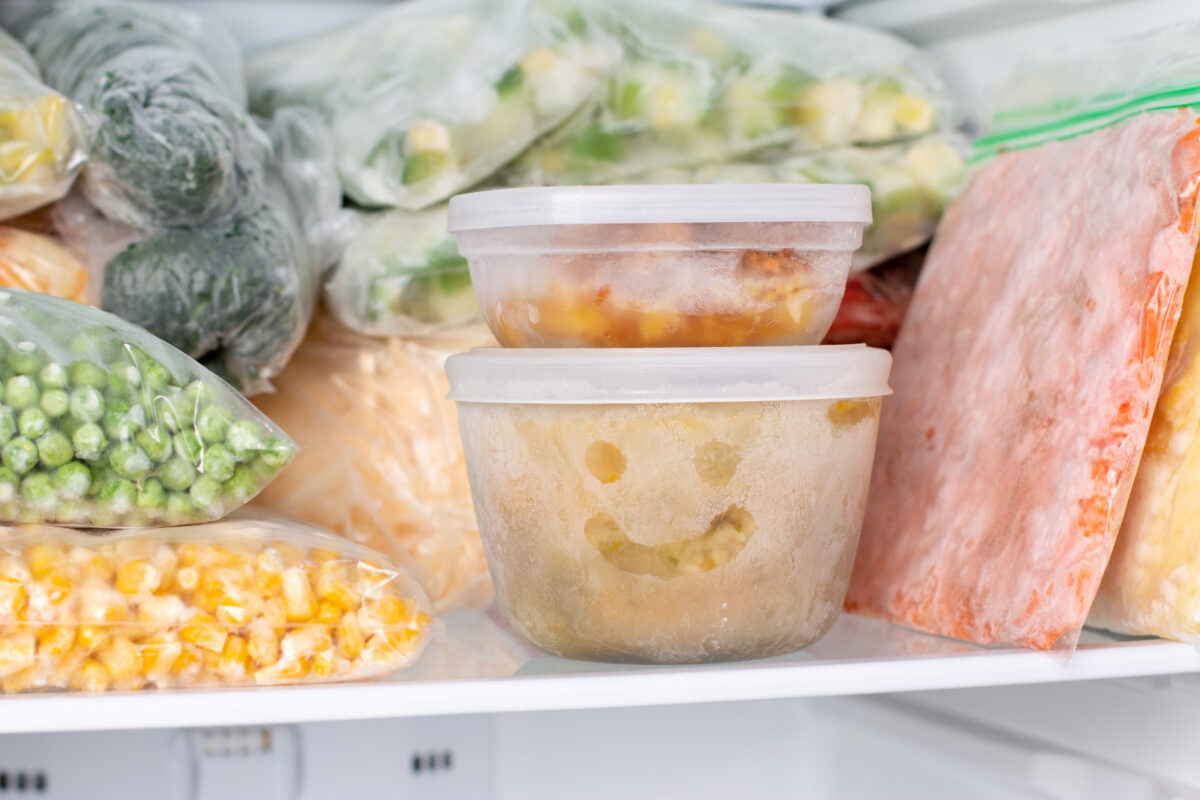
Benefits of Frozen Vegetables
In addition to many of the nutrients being preserved in frozen vegetables, they’re also affordable, convenient, and may help you cut back on food waste.
Cost-Effective
Frozen vegetables are typically more affordable than fresh vegetables and are a great budget-friendly way to eat more produce.
While prices of fresh vegetables go up and down throughout the year depending on what’s in season and how far the produce has to be transported, the cost of frozen produce tends to stay the same.
Especially if you prefer to eat organic produce, the cost savings with frozen veggies can be significant.
Convenient
If you find your diet lacking vegetables because of the time it takes to store, chop, and cook them, frozen vegetables may be the solution.
Frozen vegetables are pre-washed and pre-chopped, which cuts down on the amount of food preparation you have to do. You can steam them in the microwave, throw them in with a pot of boiling pasta, or roast them to boost the veggie content of your meal.
Less Food Waste
A common issue people have with fresh vegetables is keeping them fresh long enough to enjoy. As a result, vegetables get thrown away, wasting produce and money.
Because frozen vegetables will keep in the freezer for months rather than a few days or a week like fresh produce, you don’t have to worry about it going bad before you use it.
How to Choose, Store, and Prepare Frozen Vegetables
When grocery shopping, it’s best to select frozen vegetable products with no extra ingredients. Plain frozen veggies are nutritionally comparable to fresh, and purchasing these allows you to flavor them at home, controlling how much fat and salt you use.
Store the frozen veggies in the freezer as soon as possible because any defrosting and refreezing can impact the quality of the product. Vegetables can stay good in the freezer for up to one year when stored in the original sealed packaging.
Once you open the bag, you may want to store any unused frozen vegetables in a zip-top freezer-safe bag so that no air can enter. This will help prevent freezer burn.
Regarding preparation, research has shown that thawing frozen vegetables before cooking causes greater losses of vitamin C. It’s best to cook your veggies from frozen rather than letting them defrost first (3).
Similarly to fresh vegetables, water-soluble nutrients in frozen produce can be lost when boiled. Cooking methods like steaming or roasting help prevent the leaching of these vitamins and antioxidants
Possible Drawbacks of Frozen Vegetables
Though frozen vegetables are overall a healthy choice, there are a couple of drawbacks to be aware of.
Added Ingredients
Many frozen vegetable products have added ingredients for flavor. This may be in the form of salt and seasonings, butter or oil, or a premade sauce packet. It’s important to remember that these ingredients can increase the calorie, fat, sodium, and sugar content of the veggies.
While these added ingredients don’t take away the nutrients from the produce and can help you add more veggies to your diet in an enjoyable way, they may not be the best option for people with diet-related conditions like diabetes, high blood pressure, or high cholesterol.
However, many frozen vegetables are available without any extra ingredients, and you can identify them with a quick scan of the nutrition facts.
Texture Changes
Some people may notice a softer texture of frozen vegetables compared to fresh, which may be undesirable. Freezing vegetables causes the water cells in the produce to expand and burst, which changes the texture of the final cooked product (2).
Roasting frozen vegetables can be one solution for counteracting the texture changes because it can help the veggies crisp up a bit.
Nutrient Loss During Processing
During processing, many vegetables are first blanched before being frozen. Blanching is when a vegetable is boiled for a short amount of time, then placed in ice water to stop the cooking process.
Research has found that some nutrients are lost in the blanching process. Beta-carotene, an antioxidant and precursor to vitamin A, may be lower in certain frozen vegetables like peas, carrots, and spinach (1).
However, the nutrient loss that occurs in fresh produce from being stored weeks after harvesting is more significant than those lost through the blanching of frozen vegetables.
Frozen vegetables are a nutritious, convenient, cost-effective way to include more veggies in your diet. Though some nutrients are lost in processing, overall, frozen vegetables have comparable vitamin levels to fresh produce.
Eating a variety of fresh and frozen vegetables is a great way to ensure you get all the nutrients you need.
Best Frozen Mixed Vegetables
Ingredients
- 12 oz frozen mixed vegetables typically broccoli, cauliflower, carrots, corn, and green beans
- 2 tbsp olive oil
- 1/2 tsp sea salt
- 1/2 tsp black pepper
- 1/2 tsp garlic powder
- 1/2 tsp onion powder
- 1/2 tsp paprika optional
- grated parmesan cheese optional
Instructions
- Preheat oven to to 400 F (200 C) and line a baking sheet with parchment paper.
- Empty the bag of mixed vegetables straight from the freezer and onto the parchment paper.
- Drizzle the vegetables with olive oil and toss them around a bit to coat them evenly.
- In a small bowl, mix together the sea salt, black pepper, garlic powder, onion powder, and paprika. Sprinkle the mixture evenly over the oil-coated vegetables using your fingers.
- Place the baking sheet in the preheated oven and roast the vegetables for approximately 30 minutes. Flip the veggies every 10 minutes or so to ensure even roasting and gauge progress.
- Once the vegetables are golden brown and beginning to crisp on the edges, remove them from the oven. Sprinkle with Parmesan cheese, if desired.
- Serve immediately and enjoy!

